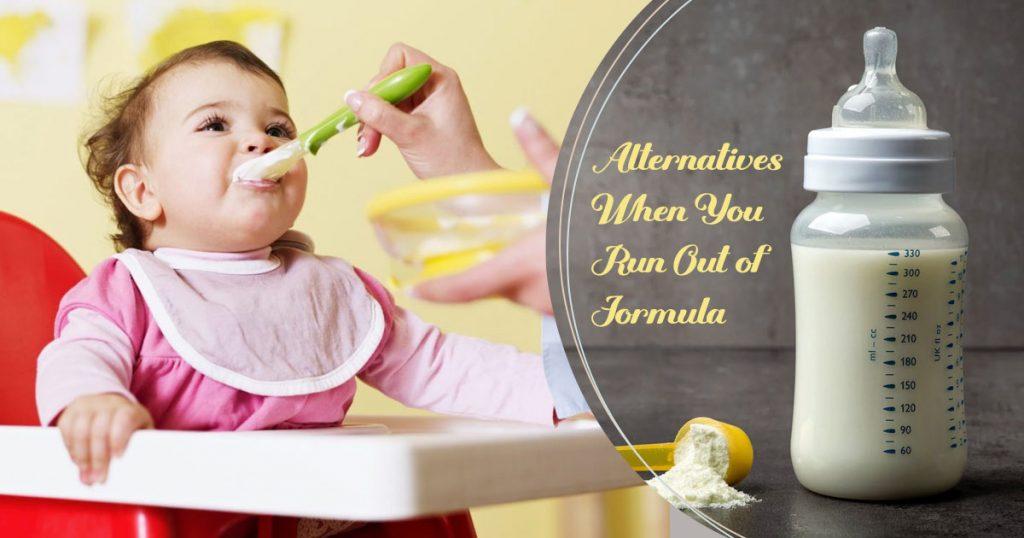It’s incredibly important for babies to get the right nutrients, especially in the first few months. This is when they’re growing quickly and what they eat is crucial for their health and development. A study mentioned in ScienceDirect even found that babies in rural India whose moms ate nutrient-rich foods were bigger at birth, showing how critical good nutrition is from the start.
Breast milk is usually considered the best food for babies because it has all the vitamins, minerals, and antibodies they need. But not everyone can breastfeed, so formula milk is a great backup. It’s made to be a lot like breast milk to meet babies’ nutritional needs. But what happens if you suddenly run out of formula? It can be really stressful for new parents, leaving them wondering what to do. Don’t stress—we’ve got tips on finding safe and good alternatives.
Understanding the Importance of Formula Milk
For lots of babies, especially those who don’t breastfeed, formula milk plays a big role in their eating habits. It’s made to be as similar to breast milk as possible, giving babies the important nutrients they need to grow up healthy and strong. Choosing the right formula is key—it has to taste okay for the baby and have all the nutrients they need for good health and growth.
The type of formula you pick can affect a baby’s early growth and how their brain develops. This is even more important for babies born prematurely, as the right nutrition can help them have better health as they grow up. Sometimes, though, parents might find themselves without formula unexpectedly or realize too late at night that they’ve run out, and then they need to find safe alternatives quickly.
Alternatives When You Run Out of Formula
If you ever find yourself without formulas, it’s good to know what safe backups you can use. Remember, these are only short-term fixes and you should talk to a doctor before making any big changes to how you feed your baby.
1. Trying Whole Cow’s Milk for a Bit
For babies older than 6 months, whole cow’s milk can work for a short time. But, cow’s milk doesn’t have all the same good stuff that breast milk or formula does, like iron and vitamin E, so it’s not a long-term solution.
2. Looking at Some Plant-Based Milk
Your doctor might point you towards certain plant milks, like pea or soy milk. These are better for babies than other kinds, such as almond or coconut milk, because they have more protein and fat, which is what the babies need.
3. Using Solid Foods More
If your baby already eats solid foods (usually starting around 6 months), you can give them a bit more pureed foods and cereals to help out nutritionally for a little while. But this is in addition to milk, not instead of it.
4. Considering Donor Breast Milk
Donor breast milk from places like the Human Milk Banking Association of North America (HMBANA), CHOP Mothers’ Milk Bank, and The Milk Bank is another choice. This milk is safe and tested, making it a great alternative to breast milk. You can get in touch with these groups online or by phone to see about getting donor milk. Availability and costs can vary, though.
What Not to Give Your Baby Instead of Formula
Running out of baby formula can be a worrying situation, but it’s crucial to avoid some foods and drinks that might look like okay stand-ins but could actually be bad for your baby or not give them what they need nutritionally. Here are things to avoid:
- Cow’s Milk for Babies Under 6 Months: It’s tough for young babies to digest cow’s milk, and it doesn’t have the important nutrients they need.
- Some Plant-Based Milks: Kinds of milk like almonds, rice, and coconut don’t have enough fat and protein for your baby and shouldn’t be used instead of formula unless your doctor agrees.
- Honey for Babies Under 1 Year: Honey is a no-go because it can cause botulism, which is a serious kind of food poisoning.
- Diluting Food Products: Making a bottle by watering down foods like rice cereal isn’t good enough nutritionally and could be harmful.
- Homemade Formula: Trying to make formulas yourself is not safe. These homemade mixes might not have the right nutrients and could be contaminated.
- Sugary Drinks: Juices and sodas should be avoided. They don’t help nutritionally and can mess with healthy eating patterns.
- Caffeinated Drinks: Don’t give your baby tea, coffee, or anything caffeinated. It can lead to sleep issues, crankiness, and dehydration.
Keeping Your Baby Fed and Healthy
Running out of baby formula unexpectedly can be quite stressful, but with a little planning, you can often avoid this situation. Make it part of your routine to check your supply of formula, especially before weekends or holidays when you might not be able to shop as easily. This small step can save you from the stress of finding yourself low on formula at a bad time.
If you do find yourself without a formula, keep in mind that, while there may be temporary solutions, talking to your pediatrician is key. They can help you find the safest options for your baby, considering their specific health and dietary needs.
Ultimately, ensuring your baby stays well-fed and healthy might require some foresight for those unexpected moments.
